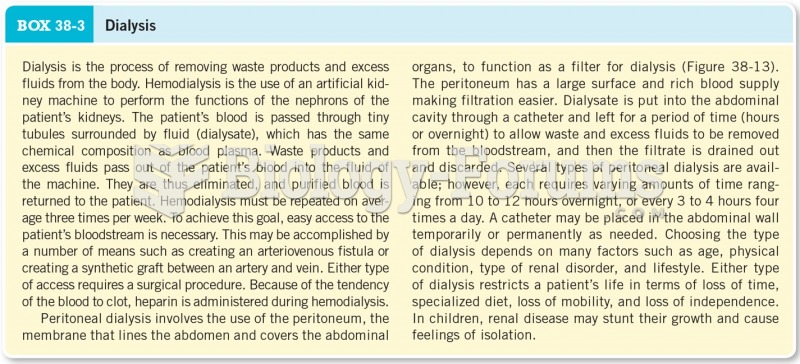Answer to Question 1
Correct Answer: 4
Rationale 1: The client would have been informed about the purpose and outcomes expected from epoetin alfa at the previous visit.
Rationale 2: Monitoring the amount of water removed is important during all dialysis treatments, but there is no increased importance after administration of epoetin alfa.
Rationale 3: Aseptic management of the shunt is important before, during, and after all treatments, but there is no increased importance after administration of epoetin alfa.
Rationale 4: The client is at great risk for clotting of the shunt because of increased RBC values.
Global Rationale: The client is at great risk for clotting of the shunt because of increased RBC values. The client would have been informed about the purpose and outcomes expected from epoetin alfa at the previous visit. Monitoring the amount of water removed is important during all dialysis treatments, but there is no increased importance after administration of epoetin alfa. Aseptic management of the shunt is important before, during, and after all treatments, but there is no increased importance after administration of epoetin alfa.
Answer to Question 2
Correct Answer: 4
Rationale 1: Taking oral iron with a large meal is not indicated.
Rationale 2: Iron is irritating to the stomach, so administration at bedtime is not recommended.
Rationale 3: Milk, tea, and coffee inhibit iron absorption.
Rationale 4: Iron is best absorbed on an empty stomach. If the client cannot tolerate it, or if nausea develops, iron may be taken with a small meal.
Global Rationale: Iron is best absorbed on an empty stomach. If the client cannot tolerate it, or if nausea develops, iron may be taken with a small meal. Taking oral iron with a large meal is not indicated. Iron is irritating to the stomach, so administration at bedtime is not recommended. Milk, tea, and coffee inhibit iron absorption.







